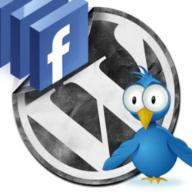What are the differences between HRD and HRM?
2006-11-10 12:46 am
What are the differences between HRD and HRM?
回答 (1)
2006-11-13 12:34 am
✔ 最佳答案
Human Resource Management (HRM) and Human Resource Development (HRD) eachhave their own unique purpose in the functionality of a company.
Human Resource Management (HRM) is the management of company
PERSONNEL. It is defined as: “Staffing function of the organization.
It includes the activities of human resources planning, recruitment,
selection, orientation, training, performance appraisal, compensation,
and safety.”
GLOSSARY
http://www.crfonline.org/orc/glossary/h.html
Here is a more detailed explanation:
“HRM means just what it says -- human resource management -- the
management of people or resources in an organization. Almost every
working organization has to have some form of HRM staff to take care
of basic employee management tasks. HRM encompasses the traditional
areas that most people think of as HR, including compensation and
benefits, recruiting and staffing, employee and labor relations and
occupational health and safety.
An HRM professional might start out as a generalist, then choose a
specialty area of HRM such as benefits and become a benefits manager.
After that, she may choose to remain in the specialty area, perhaps
running all benefits programs at an organization, or move into an HR
leadership role as an HR director or VP overseeing both HRM and HRD
tasks.”
Human Resource Development (HRD) is the development and management of
company RESOURCES. It is defined as: “The development of human
capabilities, abilities, knowledge and know-how to meet people's
ever-growing needs for goods and services to improve their standard of
living and quality of life. It is a process in which the citizens of a
nation acquire and develop the knowledge and skills necessary for
occupational tasks and for other social, cultural, intellectual and
political roles that form part of a vibrant democratic society.”
GLOSSARY
http://www.polity.org.za/html/govdocs/white_papers/social97gloss.html
Here’s more on HRD:
“On the other hand, HRD -- human resource development -- is the
development of the resources in a company: organization development,
performance management, training and learning, and coaching. HRD
includes evaluating the performance of employees, helping employees
learn and develop new skills, and assisting them with weaknesses or
areas of development. HRD also includes helping an organization
develop -- diagnosing problems with how people work together in
certain areas of an organization.
An HRD professional's career might begin with an analyst role, working
as a consultant on a company's organization development (OD) team. The
HRD professional may then choose to specialize, focusing specifically
on performance programs in the organization, or may become an OD
manager, in charge of several analysts or consultants working on OD
projects. After that, he may choose to remain in the specialty area
running the OD function, or move into an HR leadership role as an HR
director or VP overseeing both HRM and HRD tasks.”
VAULT CAREER LIBRARY
http://www.vault.com/store/book_preview.jsp?product_id=39123
收錄日期: 2021-04-23 15:50:22
原文連結 [永久失效]:
https://hk.answers.yahoo.com/question/index?qid=20061109000051KK02193

